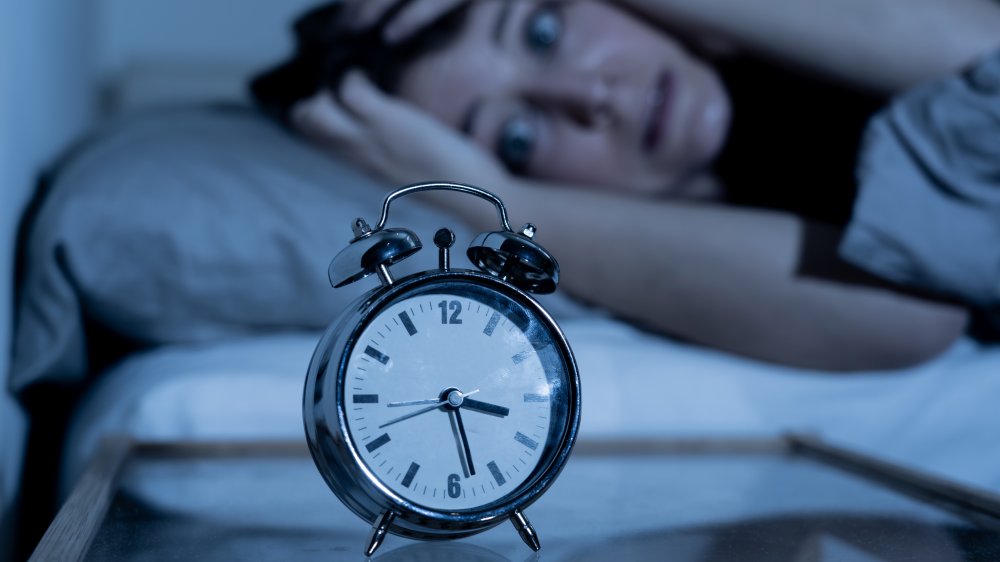
Stress-related insomnia is a common problem for many people, and it can have serious negative effects on overall health and wellbeing. Stress-related insomnia is a condition in which an individual suffers from difficulty sleeping due to stress or anxiety. It can lead to significant fatigue, mental exhaustion, and a lack of energy throughout the day. As a result, it can have a major impact on an individual’s ability to function normally in their daily life. The good news is that there are a variety of methods that can be used to help reduce stress-related insomnia. Here are some tips for overcoming stress-related insomnia:
1. Develop a consistent sleep schedule. One of the most important steps in treating stress-related insomnia is to establish a regular sleep schedule. Try to go to bed and wake up at the same time every day, even on the weekends. This will help to regulate your body’s circadian rhythm, which can help to reduce stress and promote better sleep. 2. Exercise regularly. Regular physical activity can help to reduce stress and promote better sleep. Aim to get at least 30 minutes of exercise per day, such as walking, running, or swimming. Make sure to avoid strenuous exercise late at night, as this may make it harder to fall asleep. 3. Avoid caffeine and alcohol. Caffeine and alcohol can both have a negative effect on sleep, as they can both make it harder to fall asleep and stay asleep. Try to avoid drinking caffeine or alcohol at least four hours before bedtime. 4. Reduce stress. Stress can be a major cause of insomnia, so it’s important to find ways to reduce your stress levels. Try relaxation techniques such as yoga, meditation, or deep breathing. You can also try writing in a journal or talking to a friend or family member about your worries. 5. Create a comfortable sleep environment. Make sure that your bedroom is dark, quiet, and comfortable. Remove any electronic devices such as TVs, computers, or phones from the bedroom, as the light and sound can make it harder to fall asleep. 6. Try natural sleep aids. Natural sleep aids such as melatonin or valerian root can help to promote better sleep. Make sure to talk to your doctor before taking any natural sleep aids, as some can have negative side effects. Stress-related insomnia can be a difficult condition to deal with, but there are a variety of methods that can help to reduce its effects. By following these tips, you can get on the path to better sleep and improved overall health.
Insomnia is a common problem that affects millions of people around the world. It can be caused by a variety of factors, including stress, poor sleep habits, and medical problems. Unfortunately, many people suffer from insomnia and don’t know how to deal with it. If you’re one of those people, here are some tips to help you overcome your insomnia. 1. Develop a consistent sleep schedule. It’s important to develop a consistent sleep schedule and make sure to go to sleep and wake up at the same time every day. This will help your body adjust to a regular sleep cycle and make it easier to fall asleep and stay asleep. 2. Avoid stimulants before bed. Stimulants such as caffeine, nicotine, and alcohol can interfere with the body’s natural sleep cycle and make it harder to fall asleep. Avoiding these substances before bedtime will help you get the restful sleep you need. 3. Exercise regularly. Regular exercise can help reduce stress and improve overall sleep quality. Aim for at least 30 minutes of moderate exercise every day. 4. Avoid large meals and drinks before bed. Eating a big meal or drinking a lot of fluids before bed can make it harder to sleep. Try to avoid eating or drinking anything two hours before bedtime. 5. Create a calming bedtime routine. Creating a calming bedtime routine can help you relax and prepare for sleep. Taking a warm bath or shower, reading a book, or listening to soothing music can help you relax and get ready for sleep. 6. Make your bedroom comfortable. Your bedroom should be a comfortable space that encourages sleep. Make sure your bedroom is dark, quiet, and cool. Avoid distracting activities such as watching TV or using your laptop in bed. 7. Don’t take your worries to bed. Try to avoid worrying about things or ruminating on your problems before bed. If you’re struggling to fall asleep, get up and do something calming or distracting until you’re ready to go back to bed. 8. Talk to your doctor. If your insomnia persists despite trying self-care measures, talk to your doctor. They may be able to help you identify the underlying cause of your insomnia and recommend treatments to help you get a better night’s sleep. Insomnia can be a frustrating and exhausting problem, but it doesn’t have to be a permanent one. By following these tips, you can take control of your sleep and get the restful sleep you need.

Smartphones are often referred to as “mini computers,” and for good reason. We use them nearly every day for everything from checking the weather to sending emails, and even for making important phone calls. But just like computers, our phones can be a breeding ground for germs and bacteria. That’s why it’s important to disinfect your phone regularly to keep yourself healthy and safe. But how often should you be disinfecting your phone? The answer depends on a few factors, including how often you use your phone, where you take it, and whether or not you use a case. Let’s take a look at the best practices for disinfecting your phone. First, it’s important to understand the types of germs and bacteria that can live on your phone. According to a study conducted by the Journal of Applied Microbiology, phones can be a breeding ground for bacteria such as E. coli, Staphylococcus, and even salmonella. To keep these germs at bay, it’s important to disinfect your phone regularly. If you’re an average person who uses their phone every day for basic activities such as texting and emailing, it’s recommended that you disinfect your phone at least once a week. This is more frequent than the recommendation for computers and laptops, which is to disinfect every two weeks. If you’re someone who uses their phone often and takes it with you everywhere, then you should be disinfecting your phone even more frequently. For example, if you use your phone at the gym, or if you take it with you to public places, then you should be disinfecting your phone every few days. Finally, if you use a phone case, it’s important to disinfect both the case and the phone separately. Wipe down the case with a clean cloth and an alcohol-based solution, and then use a separate cloth and alcohol-based solution to wipe down the phone itself. Overall, the best practice for disinfecting your phone is to do it at least once a week, or more frequently if you take it with you to public places or use it at the gym. It’s also important to disinfect both the phone and the case separately. By taking these steps, you can help keep yourself safe and healthy.
Alcohol and disinfecting wipes are two of the most important items we can have in our daily lives. Whether you are someone who works in a healthcare facility, or someone who lives in a home with a family member who is vulnerable to illness or infection, alcohol and disinfecting wipes are two essential items that can help protect you and your loved ones from potential illnesses and infections. Alcohol is a powerful disinfectant and is often used to clean surfaces and equipment in medical facilities as it is an effective way to kill germs and bacteria. When used properly, it can help reduce the spread of infection and disease. When used at home, it can help protect you and your family from potential illnesses and infections that can occur from everyday activities. Using alcohol to clean surfaces and equipment at home is an easy and cost-effective way to help protect your family. It is important to use an alcohol-based solution that is at least 70% alcohol. This will help to ensure that any bacteria or germs that may be present on a surface are killed. It is also important to use the alcohol-based solution correctly and to follow the instructions for use. Disinfecting wipes are another essential item for daily use. These wipes are pre-moistened with an alcohol-based solution that helps to kill germs and bacteria. They can be used to clean surfaces and equipment in the home, as well as on hands and other exposed areas. It is important to use the wipes correctly and to follow the instructions for use. Using alcohol and disinfecting wipes every day can help protect you and your family from potential illnesses and infections. It is important to use the alcohol-based solution correctly and to follow the instructions for use. It is also important to use the disinfecting wipes correctly and to use them on a regular basis. Doing so can help to reduce the risk of illness and infection. By using alcohol and disinfecting wipes once daily, you can help protect yourself and your family from potential illnesses and infections. This can be an effective way to reduce the risk of illness and infection and can help to keep you and your family safe.